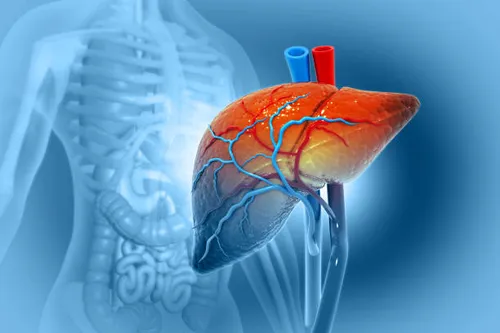Introduction
The health and well-being of newborns and infants are a priority for medical professionals globally. Vaccination against hepatitis B is a critical component of public health initiatives aimed at preventing serious liver infections and ensuring a healthier future for children. Recent discussions between doctors and Zoho CEO Sridhar Vembu underscore the importance of educating stakeholders about the significance of this vaccine for babies. This essay delves into the reasons why the hepatitis B vaccine is essential for infants, exploring its benefits, the risks of non-vaccination, and the role of healthcare professionals in advocacy.
Table of Contents
Understanding Hepatitis B Infants
Hepatitis B is a viral infection that attacks the liver, potentially causing chronic liver disease and increasing the risk of liver cancer. The hepatitis B virus (HBV) is transmitted through contact with infectious body fluids. In many cases, the infection can be asymptomatic, especially in newborns and young children, making it challenging to detect and manage. Chronic HBV infection can lead to severe complications, including cirrhosis and hepatocellular carcinoma, which are serious health concerns.
The Role of the Hepatitis B Vaccine
The hepatitis B vaccine is designed to protect individuals from HBV infection. It is typically administered as a series of shots over several months, starting shortly after birth. The vaccine contains a small, harmless part of the virus that stimulates the body’s immune system to produce antibodies. These antibodies help the body fight off the actual virus if exposed in the future.
For infants, the vaccine is usually given within the first 24 hours of birth. This early administration is crucial because it helps prevent the transmission of the virus from an infected mother to her child during childbirth. The vaccine also provides protection during a time when the infant’s immune system is still developing.
Benefits of Early Vaccination
- Prevention of Chronic Infection: Administering the hepatitis B vaccine at birth is highly effective in preventing chronic HBV infection. Infants who receive the vaccine within the first 24 hours of life have a significantly lower risk of developing chronic hepatitis B compared to those who are vaccinated later.
- Reduction in Liver Disease: Early vaccination reduces the incidence of severe liver diseases, including cirrhosis and liver cancer, which can result from chronic HBV infection. By preventing the infection, the vaccine helps in reducing the long-term health burden on individuals and healthcare systems.
- Herd Immunity: Widespread vaccination contributes to herd immunity, reducing the overall prevalence of hepatitis B in the community. This collective protection helps in minimizing the spread of the virus and safeguarding those who may not be able to receive the vaccine due to medical reasons.
- Global Health Impact: Hepatitis B is a global health issue, particularly in regions with high prevalence. By vaccinating infants, countries can work towards eradicating the virus and improving public health outcomes on a larger scale.
Risks of Non-Vaccination
- Transmission from Infected Mothers: Infants born to mothers who are carriers of hepatitis B are at a high risk of contracting the virus during childbirth. Without the vaccine, these infants are at a significant risk of developing chronic hepatitis B, which can lead to severe health complications later in life.
- Long-Term Health Consequences: Failure to vaccinate can result in chronic HBV infection, which is associated with a range of long-term health issues. Chronic hepatitis B can lead to liver damage, liver cancer, and an increased need for medical interventions and treatments.
- Increased Healthcare Costs: Treating chronic hepatitis B and its complications can be costly. Preventive vaccination helps reduce the incidence of the disease, thereby lowering healthcare costs associated with long-term treatment and management.
Advocacy and Education
The role of healthcare professionals in advocating for the hepatitis B vaccine cannot be overstated. Education plays a key role in addressing misconceptions and ensuring that parents and caregivers understand the importance of early vaccination. Engagement with influential figures and stakeholders, such as business leaders, can further enhance public awareness and support for vaccination programs.
Doctors and healthcare providers must continue to communicate the benefits of the hepatitis B vaccine clearly and effectively. This includes addressing any concerns or questions that parents may have, providing accurate information about vaccine safety and efficacy, and promoting the vaccine as a vital part of routine infant care.
Conclusion
The hepatitis B vaccine is a crucial tool in preventing a serious and potentially life-threatening infection in infants. By administering the vaccine early in life, we protect newborns from the risks associated with hepatitis B, including chronic liver disease and cancer. Advocacy and education are essential in ensuring widespread acceptance and implementation of vaccination programs. Collaboration between healthcare professionals and influential stakeholders can help amplify the message about the importance of hepatitis B vaccination and contribute to a healthier future for children worldwide.








